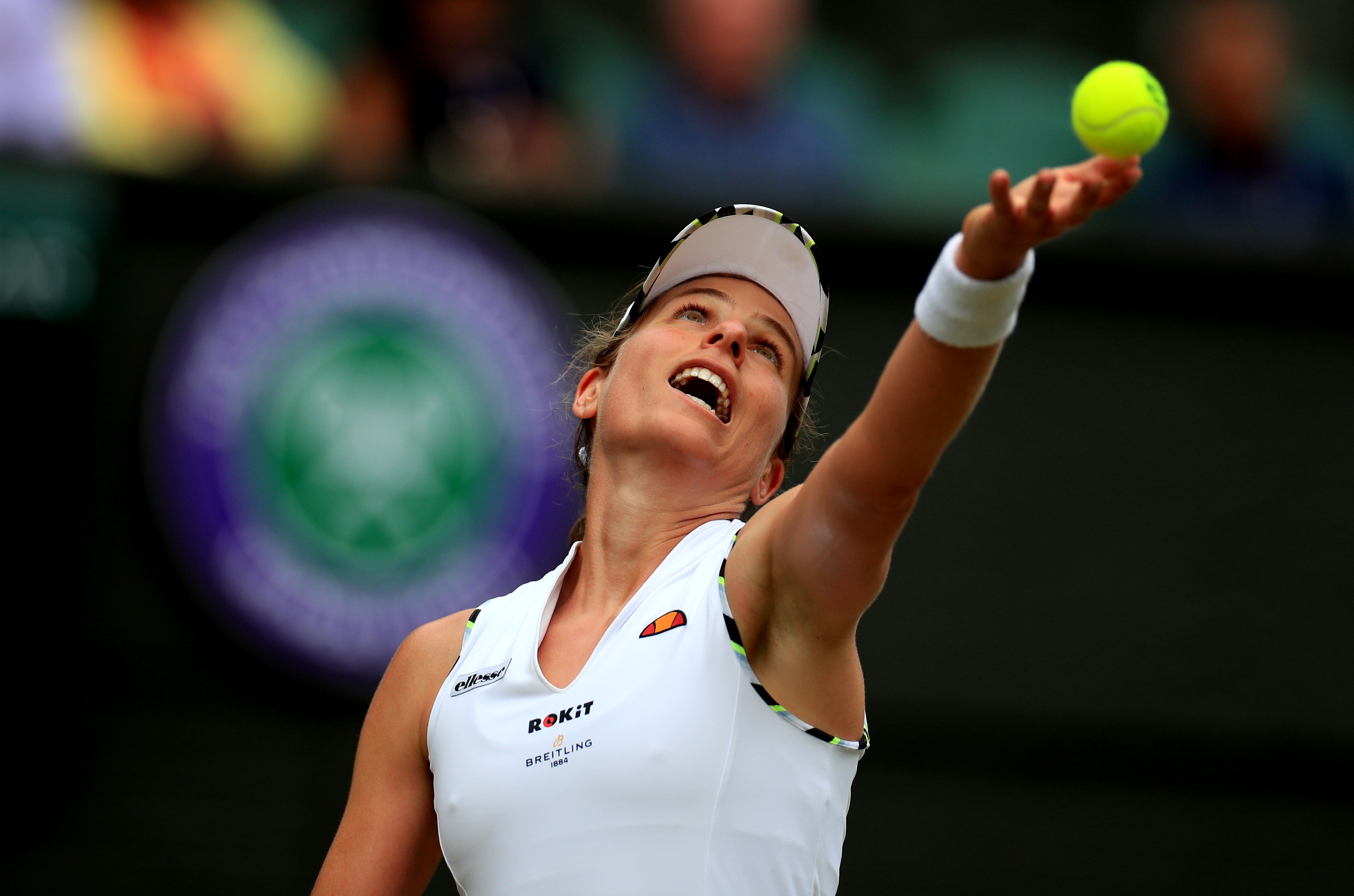Focus helped Johanna Konta become Britain’s best female player for 30 years
Konta has called time on her career at the age of 30.

Your support helps us to tell the story
From reproductive rights to climate change to Big Tech, The Independent is on the ground when the story is developing. Whether it's investigating the financials of Elon Musk's pro-Trump PAC or producing our latest documentary, 'The A Word', which shines a light on the American women fighting for reproductive rights, we know how important it is to parse out the facts from the messaging.
At such a critical moment in US history, we need reporters on the ground. Your donation allows us to keep sending journalists to speak to both sides of the story.
The Independent is trusted by Americans across the entire political spectrum. And unlike many other quality news outlets, we choose not to lock Americans out of our reporting and analysis with paywalls. We believe quality journalism should be available to everyone, paid for by those who can afford it.
Your support makes all the difference.If the definition of professional success is getting the most out of your career then Johanna Konta can most definitely retire with great contentment.
Growing up in Australia Konta was never marked out as star material but, through dedication to her craft, surpassed all her contemporaries to become Britain’s best female player for more than 30 years.
Konta’s retirement aged only 30 comes at a time when Emma Raducanu’s remarkable emergence on the world scene has made her Britain’s biggest female star.
But Konta’s achievements and impact on the British game certainly should not be overlooked in their significance.
Not since Jo Durie in the mid-1980s had a British woman reached the latter stages of grand slams, but Konta was a semi-finalist at the Australian Open, French Open and Wimbledon as well as a quarter-finalist at the US Open.
Her four career titles included one of the biggest events on the WTA Tour, the Miami Open in 2017, and she peaked in the rankings at world number four later the same year.
Konta grew up in Sydney’s Northern Beaches region, the daughter of Hungarian immigrants Gabor and Gabriella, and began playing tennis aged eight.
A quiet but intelligent and incredibly conscientious girl, Konta stood out more for her focus and attitude than her natural ability, although by the age of 12 she had left mainstream school and was on the path to professionalism.
At 14, that took her to Spain and the same academy in Barcelona that Andy Murray trained at, while her parents settled in the UK in Eastbourne.
That soon became home for Konta, too, and in 2012, aged 21, she received British citizenship and switched nationality.
Her progress was initially unspectacular and it was not until three years later that she established herself in the top 100 and began to post some eye-catching results, including reaching the fourth round of the US Open.
She maintained that momentum in 2016 under the guidance of Spanish coach Esteban Carril, her aggressive game and athletic abilities propelling her to a first grand slam semi-final at the Australian Open and a place in the top 10.
Konta replaced Carril with renowned coach Wim Fissette for the 2017 season and was even more successful, reaching the quarter-finals of the Australian Open, winning Miami and then becoming the first British woman since Virginia Wade to make the semi-finals at Wimbledon.
Konta was beaten by Venus Williams but her ranking hit a new high of four.
However, the success came at a cost, with Konta struggling for form and fitness during the rest of the season and later revealing she felt burnt out.
Her ranking dipped to 50 but then rebounded strongly in 2019 when, under French coach Dimitri Zavialoff, she found her feet on clay spectacularly, reaching the final of the big WTA tournament in Rome and then the semi-finals at Roland Garros, where she had never previously won a main-draw match.
Konta followed that up with a run to the quarter-finals of Wimbledon but lost to Barbora Strycova. As with her French Open defeat against Marketa Vondrousova, an excellent run ended with a disappointing performance in a match where she had been the favourite.
Konta projected a happy and sunny personality to the world even in defeat, always keen to stress that she did not measure her happiness in victories and defeats, but she admitted herself she could be highly strung and, when nerves wheedled their way in, her game could break down very quickly.
Her relationship with the British tennis press was spiky at times, not least after the loss to Strycova, when she took exception to a question about her own performance.
But Konta’s obvious lack of natural tennis feel made her achievements all the more impressive – here was someone who had to work incredibly hard for every step forward.
While 2019 was a year of resurgence it was also the season where her knee problem first flared up, and it remained a problem through a disjointed and disappointing 2020.
She could scarcely have been more unlucky professionally in 2021, meanwhile, completing just one grand slam match because of injury and an untimely brush with coronavirus that ruled her out of Wimbledon and the Olympics.
Off court, Konta was happily engaged to long-term partner Jackson Wade, a former videographer for the Lawn Tennis Association, with her thoughts turning to life after tennis.
Now she can focus on life with Wade and their four dogs as well as pursuing her many other interests, which she is certain to do with the same keen mind and professionalism that make her such a big loss for British tennis.